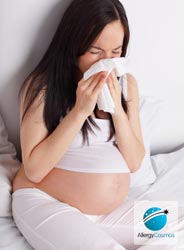I'll make no apology for returning to the subject of swine flu because the British Medical Journal has just put out an advisory note that I would like to share with you.
This follows the shocking news of the death of a healthy baby from H1N1 flu. Three-year-old Lana Ameen fell ill with what was apparently a cold on Christmas Eve and died just two days later. Now her mother, Gemma, is calling on health ministers to make H1N1 vaccine available to all children, not just those with risk factor asthma. Official advice remains that the flu jab should only be given to children aged six months and up who have risk factors. Whether this will change remains to be seen.
I visited the website for an update on H1N1 deaths and it makes disturbing reading. There have been 50 deaths from flu since the start of the flu season in October, 45 of which have been from H1N1. Most of these deaths were in people under 65, and five were in children under five. Should we be worried about swine flu? Should we be doing more to protect our children from H1N1? What do you think?
Now to what the BMJ had to say today: 'Swine flu is one of the major strains of flu around this winter. While for most people it is an unpleasant but mild illness, it can be serious. It has already caused a number of deaths this year.'
If you are worried about swine flu this is how you should protect yourself, according to the latest research and evidence:
- The seasonal flu vaccine for 2010/2011 protects against swine flu and other types of seasonal flu and is unlikely to cause any serious side effects.
- People with chronic diseases (like asthma or heart disease), people over 65, and pregnant women are all being encouraged to get vaccinated because they are more at risk of complications from flu.
- Treatments that are likely to work if you have swine flu are the antiviral medicines Oseltamivir (Tamiflu) and Zanamivir (Relenza). These medicines are not a cure for flu, but they may cut the time you are ill by about one day and you may be less likely to get complications from flu, such as pneumonia, although the evidence about this is not clear.
- If you're pregnant and you are worried about swine flu you should call your doctor immediately. It's important for pregnant women with swine flu to start taking antiviral medicines as soon as possible.
- Breastfeeding will help protect your baby against the virus, so you should carry on breastfeeding if you can, even if you get sick. You can continue to breastfeed while taking antiviral medicines.
- For most children, symptoms of swine flu are similar to those in adults, and the disease is not likely to be severe. Children can also take antiviral medicines, on the advice of a doctor.
The best way to avoid catching swine flu (or any other type of cold or flu) is to wash your hands regularly with soap and hot water. Other sensible hygiene measures to help prevent the spread of swine flu are:
- Cover your nose and mouth when you cough or sneeze, using a tissue where possible
- Dispose of used tissues quickly and sensibly
- Clean regularly-touched hard surfaces (e.g. door handles and kitchen surfaces) frequently, using normal cleaning products
- Make sure your children follow these hygiene rules
There is no evidence that wearing masks on the street, or while going about your daily business, will protect you against swine flu. Most masks are designed to stop you from passing on the germs you breathe out, not to stop germs from getting in. Masks might be helpful if you have swine flu, to avoid giving it to people who are caring for you, or if you are caring for someone at home with swine flu.




